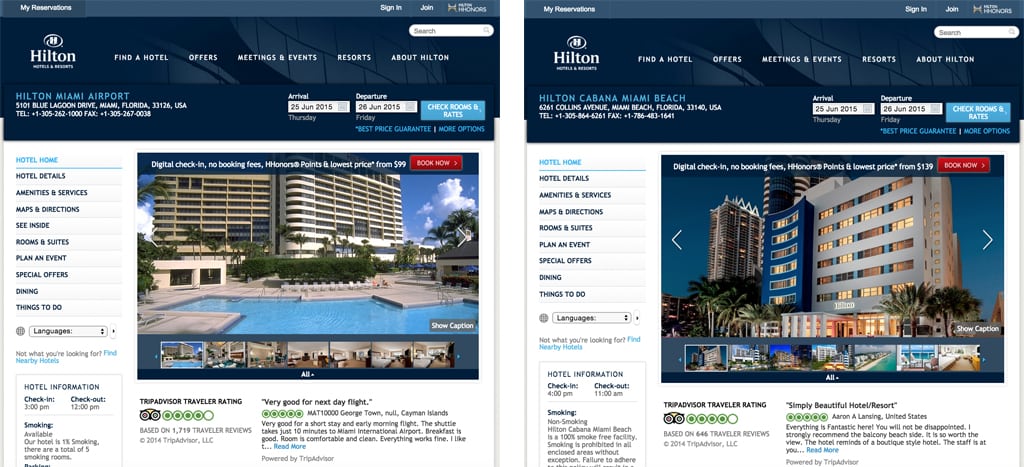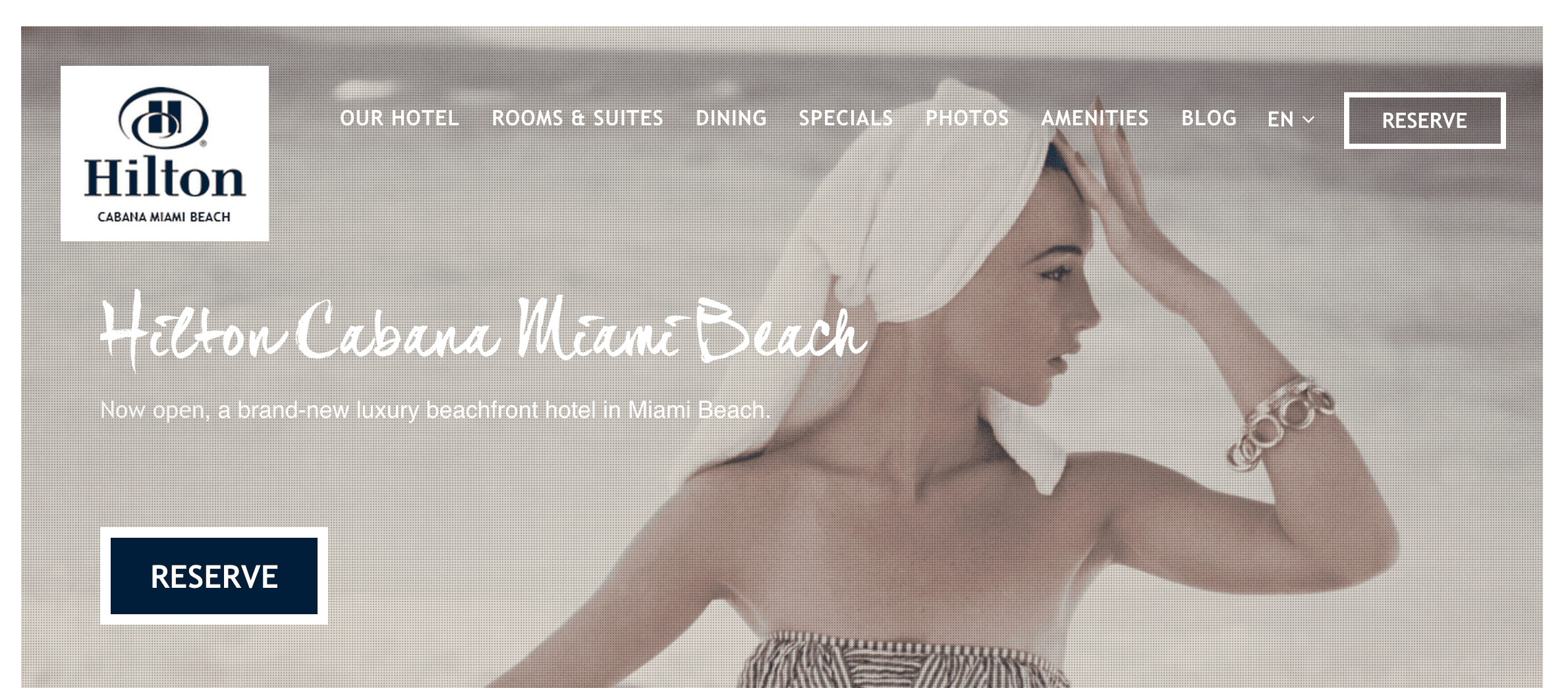Hotel Vs. Brand Websites: SEO Friends or Foes?

Skift Take
This sponsored content was created in collaboration with a Skift partner.
SEO best practices leave a great deal of room for debate, but nowhere more so than in the ultra-competitive hotel industry, where hotels compete not only with other accommodations but with OTAs and metasearch sites to rank on Google.
One of the latest SEO debates is whether an individual property’s use of a custom website with its own domain (“onehotel.com”) conflicts with the SEO of the parent brand’s property page on the brand domain (“brand.com/onehotel”). Some brands fear that Google views these custom hotel sites as “doorway pages,” which could harm rankings for both sites.
This is a misconception, however, and many agree that custom hotel sites are not doorway pages, as they are not intended as webspam. But that doesn’t mean hotels should create custom sites for the sake of it. The most successful hotels understand how brand and hotel sites complement each other to maximize on marketing and SEO opportunities.
Brand Sites: Benefits and Limitations
One of the biggest benefits to brand sites is, unsurprisingly, the brand itself. Brand websites generally carry significant domain authority on Google, which gives it a leg up in ranking for top keywords such as “hotels in San Francisco.” Furthermore, corporate brands have large groups of loyal customers, many of whom will go direct to the brand site or download a brand’s app to search for hotels.
The downside to a brand site is its corporate feel. Every property in the brand uses the same template and layout, which gives little opportunity for individual hotels to showcase their unique selling points. The brand’s property page for a full-service beachside resort and an airport hotel look exactly the same, a detriment to travelers deciding between hotels in a city.

Hotel Sites: All About Personality
Today’s new generation of travelers demand unique, local experiences—a huge reason that many hotel groups have made big investments in design and amenities to capture this audience. But even as hotels become more hip, brand websites (and their templated, “corporate” pages) lack the ability to convey the personality of a hotel. By using only a brand property page, individual hotels miss out on the opportunity to market to these types of travelers, who are not necessarily brand loyal but rather seek out places that are one of a kind.
A custom hotel site can showcase the property, amenities, services, and neighborhood more in depth and with an insider look that highlights the hotel’s unique selling points. Hotels can also update the site more quickly and easily, allowing for the creation of dynamic content such as a blog or targeted landing pages created for special events happening in the city. Social media integration is also much easier: the hotel can run feeds of its Facebook, Twitter, and Instagram directly on the site, as well as post website links on their respective social accounts.

Maximize SEO and Web Traffic With Both Brand and Hotel Sites
It is possible to have both a brand page and hotel site without causing conflicts in search rankings. Ultimately, all Google wants is to deliver the most relevant content possible to its users, so maximize SEO opportunities by targeting two distinct audiences with different value propositions. Brand sites should take advantage of domain authority to provide strong general content, particularly to its loyal customer base, while individual hotel sites should create content that highlights uniqueness of place to travelers who want more than just a place to stay.
This content is created collaboratively in partnership with our sponsor Travel Tripper.




